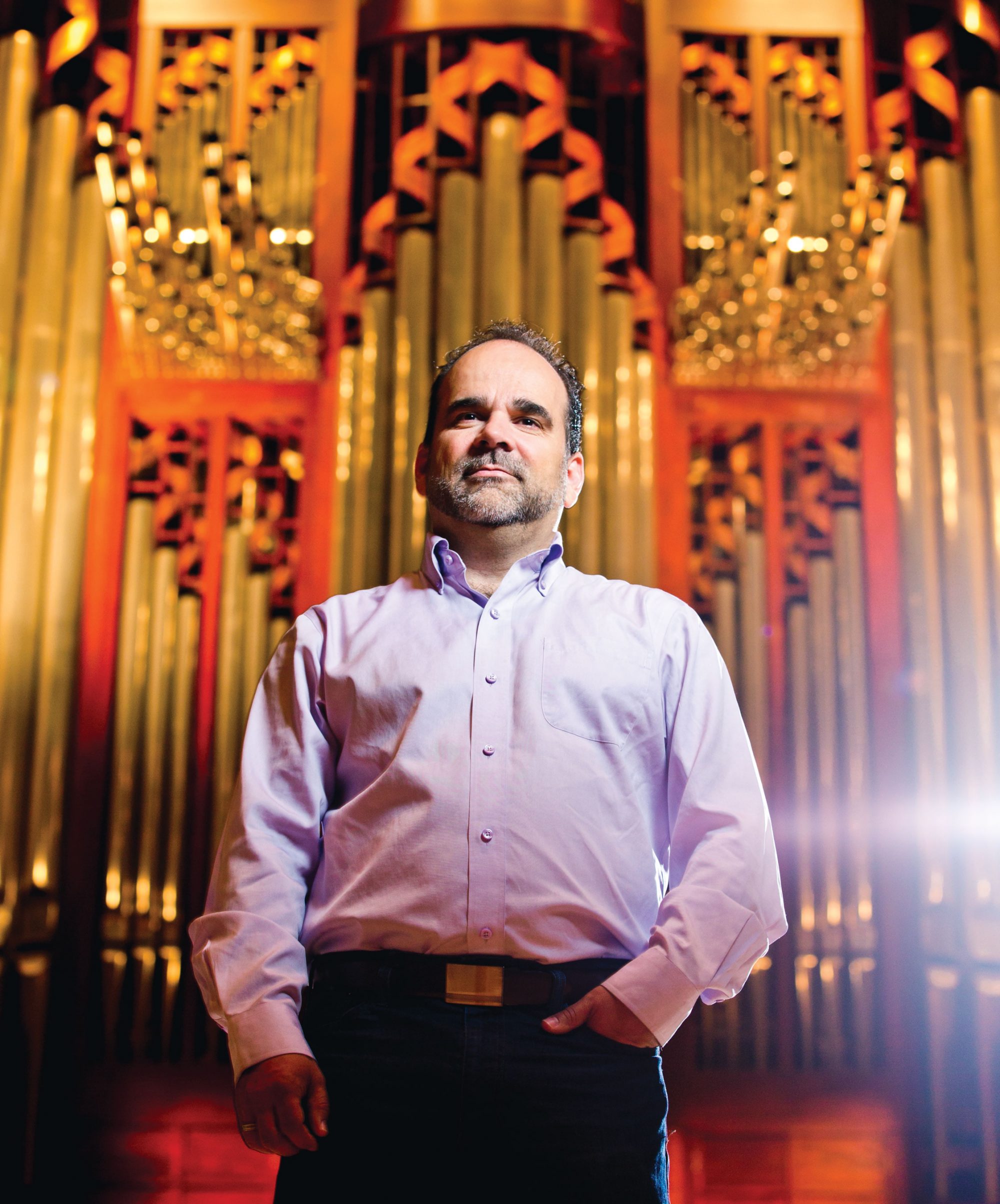The 10-week stint as artist and spokesman turned into eight years, until McPhee joined Calgary Opera and brought Estacio along to be its representative. “I wanted a communicator and a good composer, and he’s all of those things,” remembers McPhee. “He’s very down to earth.”
Estacio is the second of two children born to Portuguese immigrant farmers in Southern Ontario, 45 minutes north of Toronto, yet 500 metres from the nearest neighbour. His sister was 10 years older and the television antenna only picked up three channels, so he was socially and artistically isolated. “It’s up to you to entertain yourself,” he explains. “Tell or write stories, or hum tunes or make up little movies in your own mind.” Some nights, he lay in his bed and the humming escaped his imagination through his mouth. The melodies were so incessant and continued so late into the night, his parents would barge into his bedroom and tell him to shut up.
As early as his talents revealed themselves, Estacio didn’t see his first symphony until his late teens. His friend’s mom took him to watch a quaint community orchestra at a hall in nearby Aurora.
Estacio, lounging by the living room fireplace, his legs crossed on a chaise overlooking Groat Ravine, recalls it vividly. “To actually see them moving and breathing, and shuffling in their chairs, and the bows going up and down, and woodwinds are changing between piccolo and flute – that was the big magical moment for me.”
His parents supported his hobby as much as they could afford. When a door-to-door salesman came selling instruments and bringing news of a music school opening in the area, Estacio, 10, begged his parents for an organ. He got an accordion instead.
In his mid-teens, Estacio started working as a farmhand to raise funds for a Technics organ, while practising on the neighbour’s piano. Soon he was scoring the 8mm silent films he’d made with friends. They’d project the films on a wall and he’d improvise on the keys until he felt the rhythm of each next shot and story’s pace. Decades later, in 2003, his firm and fast grasp of narrative tone helped elevate Calgary Opera’s status as one of the best in Canada. Alongside librettist John Murrell, he wrote Filumena, the historical tale of the last woman executed in Alberta.
